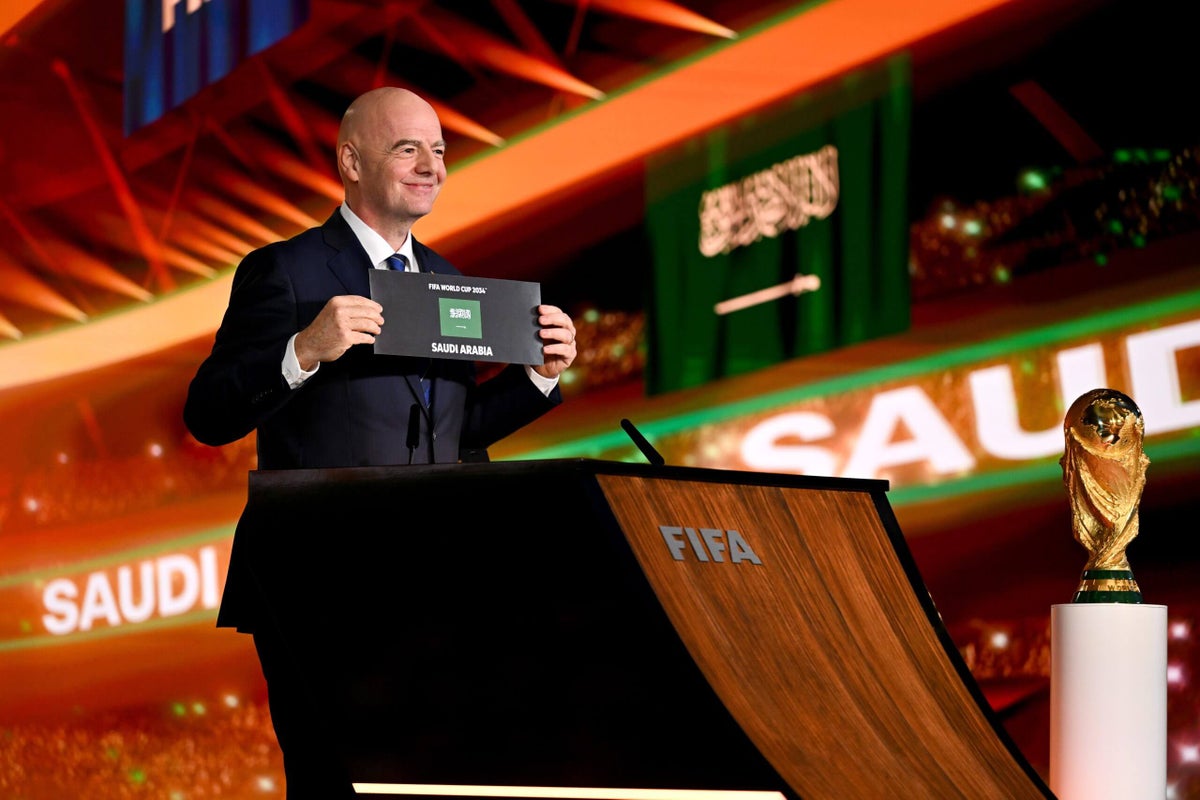Former FIFA president Sepp Blatter has said football has been “lost” to Saudi Arabia and criticised his former employer’s role in offering “no opposition” to the Middle East nation.
In December, Saudi was confirmed as the host nation of the 2034 men’s World Cup following an unopposed bid for the tournament.
Saudi Arabia has invested significantly in football in recent years, most notably in 2023 as its Public Investment Fund (PIF) took control of four domestic teams — Al Ahli, Al Hilal, Al Ittihad and Al Nassr — in the Saudi Pro League (SPL), a year after PIF bought an 85 per cent stake in Premier League club Newcastle United.
FIFA’s $1 billion broadcast deal for the newly-expanded Club World Cup with DAZN — now part-owned by PIF’s sports arm SURJ — is another element of the Middle Eastern nation’s dominant position in the sport.
Other Saudi brands, meanwhile, have been promoted across recent club and international showpieces including Aramco, Riyadh Air and Visit Saudi.
“We have lost football to Saudi Arabia,” Blatter told German TV channel ntv. “We offered it, and they took it.
“Surprisingly, there is no opposition to this within FIFA.”
Blatter also spoke about his concerns about FIFA’s newly-expanded Club World Cup, with the new-look, 32-team tournament held in the U.S. this summer.
“There’s too much football,” Blatter said about the tournament. “The same players and clubs are repeatedly affected, without adequate rest.”
Blatter also said the extreme heat, which has been a backdrop throughout the summer tournament, is “unhealthy and impertinent”.
The players union, FIFPRO, is among the critics who have called on FIFA to reconsider selecting kickoff times for matches around the middle of the afternoon, to avoid the highest temperatures. Those slots, however, have been considered more attractive for broadcast audiences in Europe and Asia, though FIFA says it is looking at using covered stadiums for the warmest times.
The 89-year-old Swiss was also critical of the leadership of his successor as FIFA president Gianni Infantino.
“Everything is done electronically, and nobody says anything,” said Blatter. “You can even arrive six hours late to a congress.”
In May, FIFA’s Congress in Paraguay was delayed because Infantino had not arrived on time for the scheduled start time in Asuncion, having decided to join the U.S. president Donald Trump for a visit to Saudi Arabia and Qatar. A meeting of the FIFA Council earlier in the week also had to be altered to a virtual meeting.
Blatter became FIFA president in 1998. His reign as the most powerful figure in football was not without its own controversies, with several corruption scandals hitting FIFA and the awarding of the 2018 and 2022 men’s World Cups to Russia and Qatar respectively attracting widespread criticism. Blatter said in 2022 that awarding that year’s tournament to Qatar 12 years earlier had been “a mistake”.
In March this year, Blatter and former UEFA president Michel Platini were cleared of financial wrongdoing by an appeals court in Switzerland.
In December 2015, Blatter and Platini were banned from football for eight years (later reduced to six on appeal) by FIFA after an investigation by its ethics committee. FIFA, and the Swiss authorities, alleged that a two million Swiss francs payment was to ensure Platini helped deliver the requisite votes to ensure Blatter was re-elected as FIFA president in 2011.
Blatter and Platini have always denied wrongdoing and said the payment was a fee paid to the former for work he did as an advisor from 1998 to 2002, which was delayed as FIFA lacked the funds to pay him in full at the time.
(Top image of FIFA president Gianni Infantino: Harold Cunningham – FIFA/FIFA via Getty Images)

